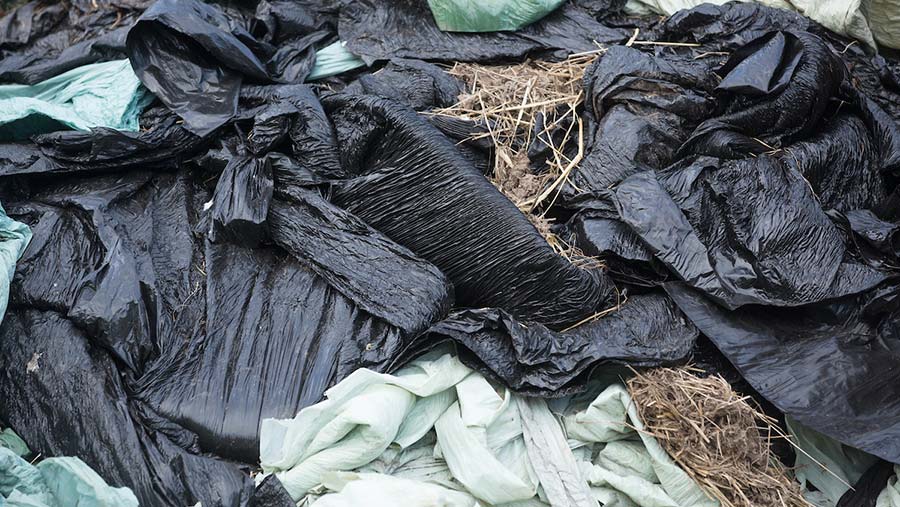Farmers warned about illegal exports of agri-plastic waste
 © Tim Scrivener
© Tim Scrivener An increasing amount of agricultural plastic waste, including silage wrap, is heading for illegal export.
The Environment Agency (EA) said it has intercepted about 200 tonnes of agricultural plastic waste this year which was destined for countries around the world.
It is believed a large quantity is being sent via roll-on, roll-off ferries to the continent.
See also: A guide to farm recycling: the options and costs
Farmers and agricultural businesses have been asked to carry out checks on those who collect, store or treat their waste and waste companies are being urged to check their waste management processes or face enforcement action.
Malcolm Lythgo, head of waste regulation at the EA, said the agency had teams stationed across the country to disrupt waste crime.
The teams visit waste processing sites and ship ports to carry out checks.
Waste checks
“We know that farmers and the agricultural sector care deeply about the environment and don’t want to see their waste being illegally exported, but unfortunately we are stopping an increasing amount of contaminated agricultural plastic waste, and it’s vital that everyone knows where their waste ends up,” Mr Lythgo said.
“That is why we want to remind farmers and agricultural businesses that they have a legal duty of care to conduct checks on those who collect, store or treat their waste.
“Anyone involved in its illegal export, from the producer to the exporter, is liable and could face severe penalties.”
Guidance on waste obligations
The Environment Agency said farmers and agricultural businesses should always:
- Use the EA website to check that the waste firms they are dealing with have the necessary authorisations for carrying, dealing or brokering waste.
- Ensure the waste is accurately described on waste transfer documentation.
- Ask where the waste is going.
- Ask for evidence that the waste company is authorised to store or treat it and what they intend to do with the waste afterwards.
In order to legally export contaminated agricultural plastic waste, including silage wrap, consent is required from both the source country and its destination, alongside all countries through which it travels.
The government has pledged to ban the export of polluting plastic waste to non-OECD countries and to introduce tougher controls on waste exports, including mandatory electronic waste tracking which will make it harder for criminals to obtain and export waste illegally.
Both the reforms will be legislated for through the Environment Bill and will undergo public consultation.
